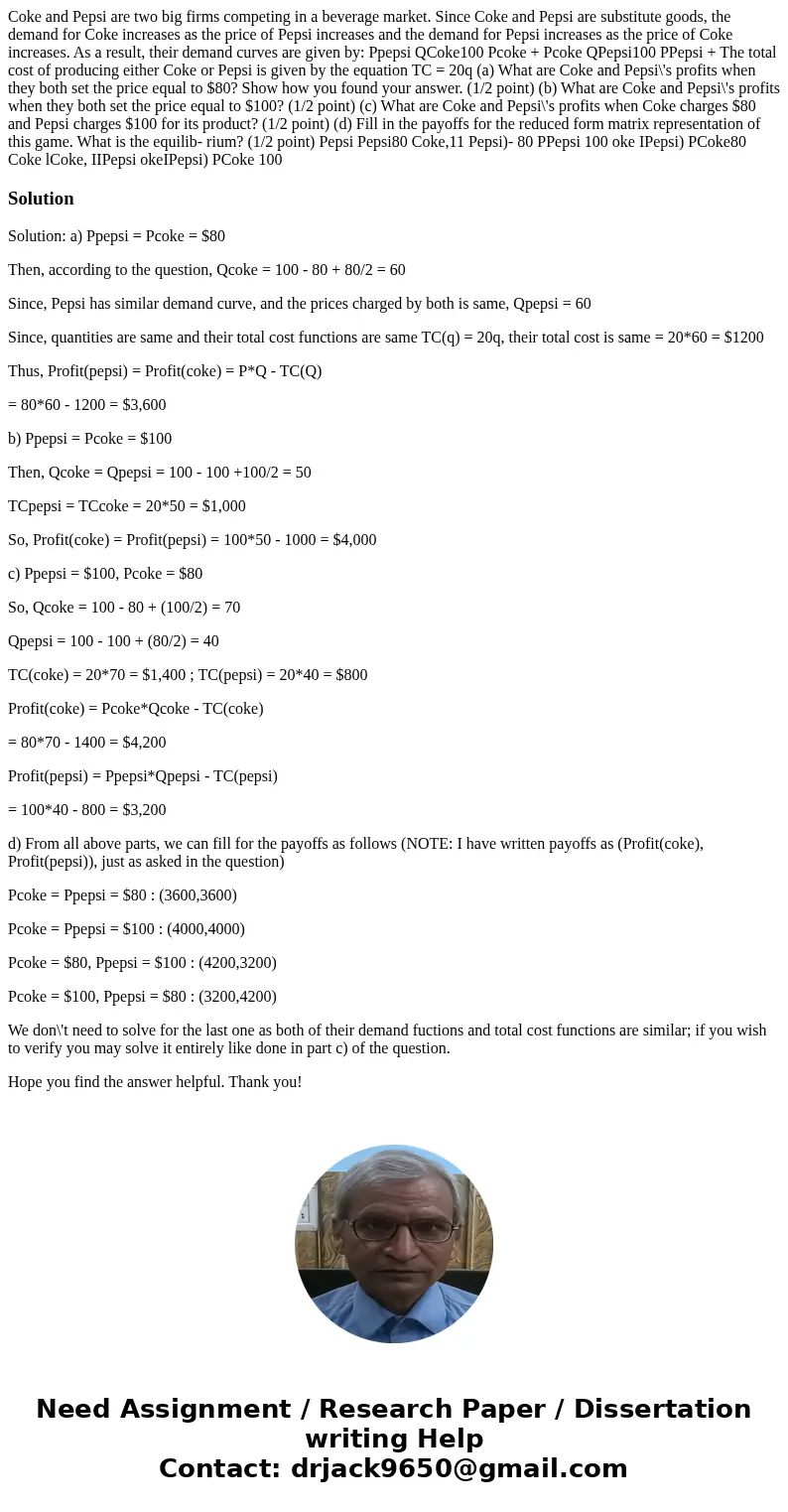Coke and Pepsi are two big firms competing in a beverage mar
Solution
Solution: a) Ppepsi = Pcoke = $80
Then, according to the question, Qcoke = 100 - 80 + 80/2 = 60
Since, Pepsi has similar demand curve, and the prices charged by both is same, Qpepsi = 60
Since, quantities are same and their total cost functions are same TC(q) = 20q, their total cost is same = 20*60 = $1200
Thus, Profit(pepsi) = Profit(coke) = P*Q - TC(Q)
= 80*60 - 1200 = $3,600
b) Ppepsi = Pcoke = $100
Then, Qcoke = Qpepsi = 100 - 100 +100/2 = 50
TCpepsi = TCcoke = 20*50 = $1,000
So, Profit(coke) = Profit(pepsi) = 100*50 - 1000 = $4,000
c) Ppepsi = $100, Pcoke = $80
So, Qcoke = 100 - 80 + (100/2) = 70
Qpepsi = 100 - 100 + (80/2) = 40
TC(coke) = 20*70 = $1,400 ; TC(pepsi) = 20*40 = $800
Profit(coke) = Pcoke*Qcoke - TC(coke)
= 80*70 - 1400 = $4,200
Profit(pepsi) = Ppepsi*Qpepsi - TC(pepsi)
= 100*40 - 800 = $3,200
d) From all above parts, we can fill for the payoffs as follows (NOTE: I have written payoffs as (Profit(coke), Profit(pepsi)), just as asked in the question)
Pcoke = Ppepsi = $80 : (3600,3600)
Pcoke = Ppepsi = $100 : (4000,4000)
Pcoke = $80, Ppepsi = $100 : (4200,3200)
Pcoke = $100, Ppepsi = $80 : (3200,4200)
We don\'t need to solve for the last one as both of their demand fuctions and total cost functions are similar; if you wish to verify you may solve it entirely like done in part c) of the question.
Hope you find the answer helpful. Thank you!

 Homework Sourse
Homework Sourse